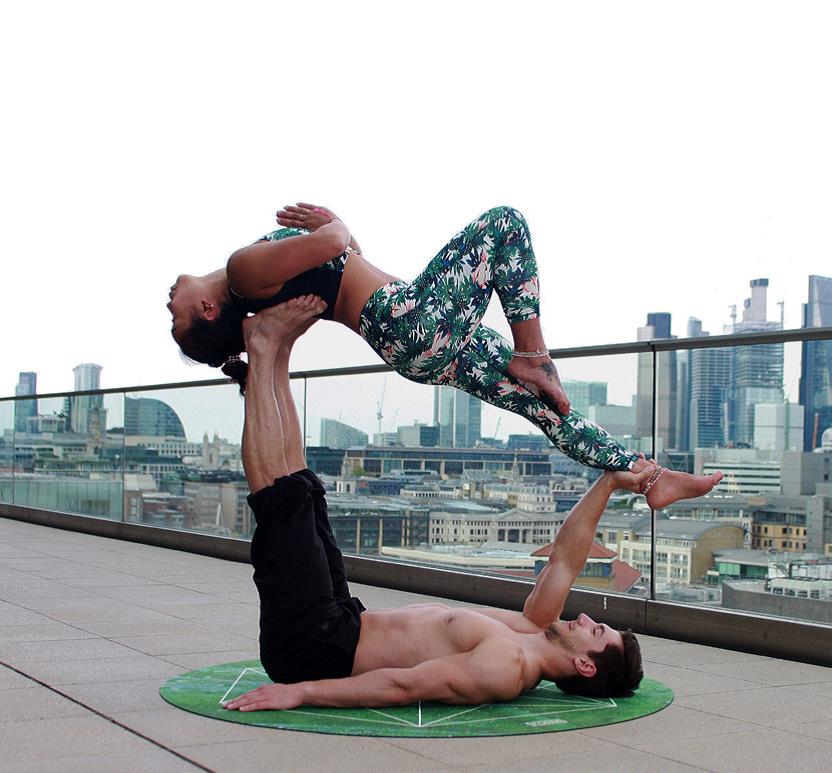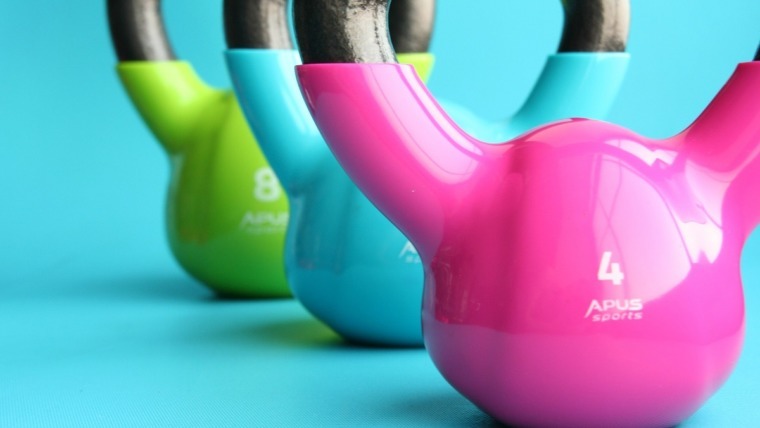
5 Ways to Stay Grounded, Healthy & Whole
According to the Yoga Journal, “in physics, the three essential elements of balance are alignment, strength, and attention. Alignment of the body with gravity is crucial; it makes balance physically possible. Strength gives us the power to create, hold, and adjust alignment. And attention continually monitors alignment so we know how to correct it from one moment to the next.”
So how does the physics of balance apply to our lives in the material world?
Life is a balancing act. We are juggling career, relationships, children, animals, finances, goals, dreams, desires, feelings, thoughts, moods, traffic, unforeseen circumstances…the list goes on… all in any given moment. Perhaps, at times, multiple things at once.
The reason balancing poses are so important in yoga is because they help us to find balance in life. What we learn on the mat, can be implemented in the real world. Aside from the vast amount of physical benefits - including improved coordination and an increase in physical strength and stability - balancing poses also offer emotional and spiritual benefits and support.
B.K.S. Iyengar (one of the foremost yoga teachers worldwide) said, “Yoga, an ancient but perfect science, deals with the evolution of humanity. This evolution includes all aspects of one’s being, from bodily health to self realization. Yoga means union – the union of body with consciousness and consciousness with the soul. Yoga cultivates the ways of maintaining a balanced attitude in day to day life.”
Balancing poses teach us that… (The Delicate Art)
Life is dynamic. Change is constant. During yoga practice, you will feel different each day depending on many variables: the pose you choose, how your body feels that day, your hydration level, your mind frame, your environment and your mood. Today, you may find balancing poses a breeze. But tomorrow? Timber! Toppling over. Like on the mat, life in the real world is constantly changing. Our moods, feelings, physical condition, environment… Every day is different.
Focus is so important. Really honing in on the direction you wish to go will help bring you there quicker and with more ease. In the same way, focusing and staying uber present helps you with balance in asana (poses). In yoga, it is called your “drishti.” Your static focal point; what helps you stay grounded and balanced.
You are way stronger than you realize. Balancing poses can be difficult; but so can life. With dedication and determination, you will realize that after each stumble and fall, you become stronger. More centered. More equanimous. Taking a look at how far you’ve come serves as a great reminder that you have strength far beyond what you may have realized in the moment.
Sometimes, when we think of balance we think of a scale. And both sides of the scale must have equal portions to reach a state of perfect balance or harmony. This is a somewhat dangerous view, as there will be many times in life that the scales are tipped one way or another. And if you’re betting on life being harmonious only when equality on both sides occurs, you may be in for some disappointment, struggle and pain. When a family has young children, the scale is tipped in that direction. A promotion at work will tip the scales. A sickness may throw off the perceived “balance” of things. Again, life is ever-changing. Sure, some days we may feel that our scale is balanced. But more often than not, the scales are not even. And that’s okay, as many times the reason our scale is tipped is a blessing. Something we prayed for, hoped for or wanted.
Let’s instead consider balance like physics: a state of harmony is reached when we are aware of, and putting effort into, our alignment, strength and attention.
Here are 5 ways to balance life and improve well-being, regardless of what is going on outside of you:
1. Practice Acceptance.
As mentioned, every day is different. The more we learn to accept what is, and roll with it, the better we will become at cultivating equanimity and peace of mind. The less energy we give to thoughts of “this is unfair,” or “why me?” the more energy we have to face challenges head on and come up with creative solutions and clarity. Eckhart Tolle says, “Whatever the present moment contains, accept it as if you had chosen it.” You may ask, why?The answer is simple. The benefits are profound. The art of surrender is the key to becoming whole; surrendering to a greater plan, letting go of the outcome and releasing the need to control and manipulate life. Just accepting what is (moaning about it won’t change it, anyway, it will just keep you stuck feeling bad, longer). This makes life flow much easier, releases unnecessary tension and negativity, and primes us to focus more on the positive aspects of life, or being in the present moment. Picture this: finally letting go tons of baggage you have been white knuckling. What does that feel like for you? Perhaps it’s a sigh of relief, a weight lifted, a feeling of lightness and space freed up. Life improves. Well-being improves. And everything begins to change.
2. Face the direction you wish to go.
“The very heart of yoga practice is abhyasa – steady effort in the direction you want to go.” – Sally Kempton
Whether you’re trying to hold a balancing yoga pose or attain a goal in life, you must know the direction you wish to go and be willing to take action to get there. It’s a marriage of focus and movement. Keep your eyes on the end goal, but pay close attention to each step that you take. The reason that New Years’ Resolutions fail is because we lose focus and stop putting effort into achieving them. We take our eyes off the prize and place it on that delicious donut instead. And there’s nothing wrong with that. But, if we want to truly get someplace, we have to stay pointing in that direction, taking baby steps in that direction. If you “fall out,” no worries. Brush yourself off, refocus and try, again. Life isn’t a destination, it’s a journey, and change is a process.
3. Use all your resources.
In balancing postures, you are pulling together all of your resources: engaging and isolating various muscles, activating the core for support and strength, steadying the mind and concentration, using breath work to remain centered and grounded.
To truly cultivate balance, one must incorporate their entire being: body, mind and soul. This sacred trilogy works together to support each of its three branches. For example, if the body is fatigued, the mind and spirit can work together to bring energy and positivity and healing.
If life is feeling unstable, ask for help. You don’t have to do it all alone. There are people out there willing and able to help you, support you and get you back on your feet or moving forward. Many people believe they are weak if they cannot be a one man show, or appear vulnerable. But, contrary to that belief, it takes true strength to know when you need to ask for assistance. If you need a rest, take it and let someone else pickup the slack. If you need time for yourself, take it. This doesn’t make you selfish. This makes you wise. You need to have energy to be able to give it out to others. If you end up hospitalized or severely neglected running on empty, what could you possibly do for anyone else? What would you have left to give? How would you show up for them or life? Asking for help doesn’t only benefit you… it allows others to feel good to be able to give. Win/Win. So make a decision to open up to receiving.
4. Stay Present. (The Delicate Art)
Mindfulness practices are growing in society, organizations and schools and there is just no wonder why: research is stacking up that the benefits are profound and there are no “adverse side effects.” Mindfulness has been shown to improve the mental, emotional, physical and social health and wellbeing of the adults and children that practice it. Some more specific benefits include: improved ability to focus, improve memory, reduction in stress, anxiety and reactivity, better behavior and emotional management, increased self esteem, quicker to calm down and relax when upset, and increased empathy. In schools, bullying was seen taking a decline after mindfulness was introduced.
One of the most profound and immediate benefits of being present in the moment is that you stop analyzing, over thinking and judging. Know what that means? Less negativity. Less harboring anger and resentment. You’re so busy focused living this moment in time that you don’t have the space for keeping the “bad” stuff around. This translates into a much happier state of being, and even improves relationships as those around you are less likely to feel judged by you. Less worry, less stress. More energy, more joy, more peace. Ultimately, more balance.
5. Find and keep your alignment. (The Delicate Art)
“Happiness is when what you think, what you say, and what you do are in harmony.” – Mahatma Gandhi
Stephen Arterburn said it simply, “We are as sick as our secrets.” Not only secrets, but our continued inauthenticity. It may not appear this way, but that which we bury inside and carry around, affects us. We can brush it under the rug, ignore it, or justify it. But that doesn't change the fact that we build our lives around our secrets or anything we are trying to hide or avoid. We do all we can to keep them hidden, to not risk their exposure. It can consume us and eat away at our brilliance. How can we shine if we are so busy pulling the light away from a very real part of ourselves?
To the best of your ability, live and speak your truth. Say no when you mean no. Do something that lights you up even if you feel there is a chance you will be criticized. This is a practice and skill that comes in time. But being in alignment with our true selves, our true essence, is the most powerful transformative tool we have.
While many aspects of life are a true balance where maintaining both halves is important and beneficial (think: yin and yang, dark and light, effort and ease), most of life is unbalanced in that sense.
Geshe Kelsang Gyatso said, “We all wish for world peace, but world peace will never be achieved unless we first establish peace within our own minds.” Everything begins and ends within us. Love, kindness, understanding, compassion, peace, joy, balance… how we view the world is a reflection of what is going on inside us in any given moment.
True balance and harmony in life is not the result of a picture-perfect, even-keel external world. It is the reward of living a beautifully chaotic, imperfect life that we have come to love, accept and honor as perfect for us in each moment.



